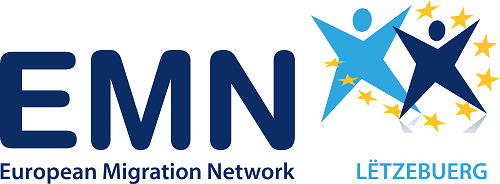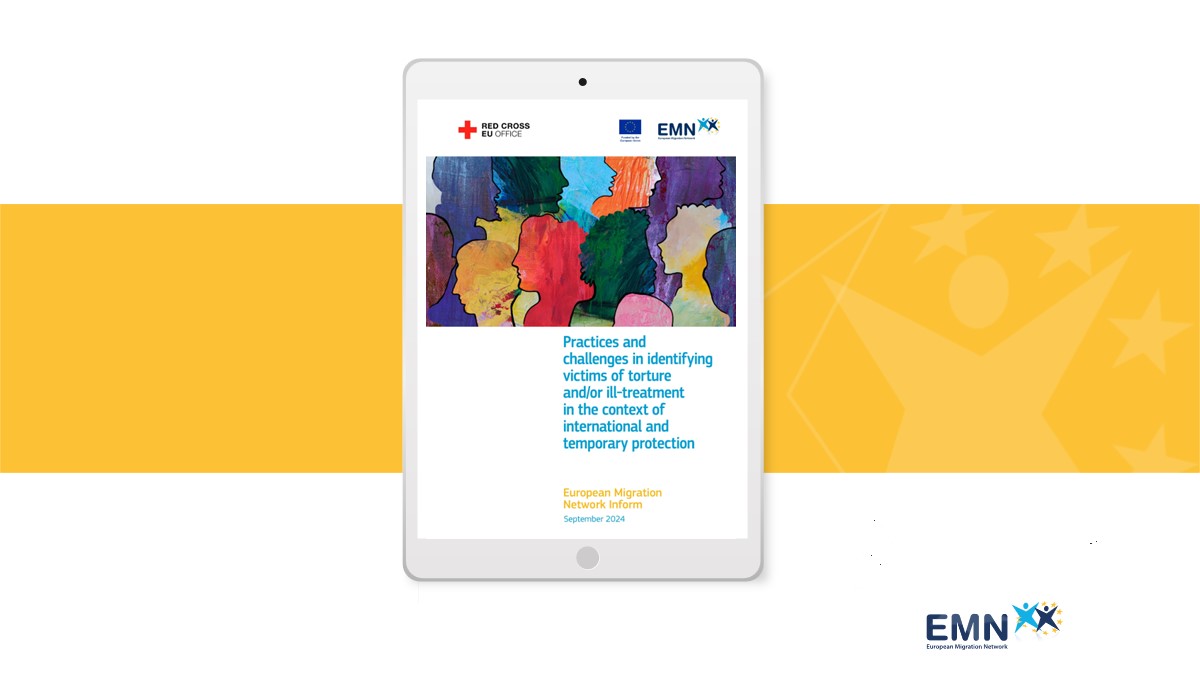European Migration Network (EMN) inform ‘Practices and challenges in identifying victims of torture and ill-treatment in the context of international and temporary protection (EMN – Red Cross Inform)‘.
In collaboration with the Red Cross EU Office and the Swedish Red Cross, this Inform provides an overview of EMN Member and Observer Countries’ guidance and training on early detection and identification of presumed victims of torture or other forms of inhuman or degrading treatment or punishment in international protection procedures. It outlines procedural safeguards and guidance for asylum authorities when requesting medico-legal documentation in international protection applications, and it also details practices for identifying victims among beneficiaries of temporary protection to provide medical care, in line with the Temporary Protection Directive.The findings of the inform found that while most EMN Member Countries monitor the implementation of migration-development nexus initiatives through general mechanisms applicable to all development cooperation and/or migration initiatives, Austria, Belgium, Germany, France, and the Netherlands have dedicated mechanisms for monitoring and evaluating their contributions at operational and strategic levels.
Under international human rights law, the European Convention on Human Rights, and the Charter of Fundamental Rights of the European Union, the prohibition of torture is an absolute, non-derogable human right. At the EU level, there are specific provisions for identifying victims of torture. However, data on the prevalence of torture among applicants for international protection remains limited, with estimates suggesting around 400.000 torture survivors in the EU as of 2010. Moreover, available data suggests that 30-60% of international protection applicants seeking medical attention were survivors of torture. Research indicates that they often struggle with mental health issues, such as Post-Traumatic Stress Disorder (PTSD), anxiety, suicidal thoughts, and depression, affecting their ability to properly present their claim for international protection and/or increase the likelihood of receiving a negative outcome. Medico-legal reports can be crucial for substantiating claims and facilitating access to necessary treatments. However, comprehensive data on the procedural safeguards across different stages of the asylum process is lacking.
Among other findings, the Inform, which covers the period from January 2022 to the end of July 2023, with additional information gathered in April 2024, highlights that:
-
In the context of international protection procedures, competent authorities in the majority of EMN Member and Observer Countries receive general training through national programs or dedicated sessions, with the objective of ensuring early detection of torture victims.
-
Medico-legal documentation can provide important evidence for their torture and/or ill-treatment. It is typically requested on a case-by-case basis by caseworkers and is crucial to support claims and access treatment and rehabilitation.
-
Guidelines for medico-legal documentation vary, with only some EMN Member and Observer Countries maintaining lists of designated medical practitioners or specific criteria for evidence consideration. Over half of the responding countries allow applicants to submit documentation directly.
-
Often, training and guidance for detecting victims of torture come from the European Union Asylum Agency (EUAA), NGOs, or international organisations, with some countries like France and Sweden developing their own guidance.
-
Key challenges in international protection procedures include: victims’ hesitancy to report due to fear, shame or mental health consequences; assessing the credibility of torture claims; and victims’ lack of trust in the authorities, often due to their experiences in countries of origin or transit.
-
Good practices reported by EMN Member and Observer Countries in the context of international protection include fostering strong cooperation, involving several stakeholders from earlier stages (e.g. reception centres), and promoting flexible processes and the exchange of information that meet the needs of torture survivors.
-
The primary challenge for the authorities in identifying and detecting beneficiaries of temporary protection (BoTP) who have been subject to torture and/or ill-treatment is that BoTP spend relatively little time in contact with authorities while registering for temporary protection. However, some EMN Member and Observer Countries have introduced protocols, specialised centres providing tailored medical services, and launched awareness campaigns to facilitate self-reporting,
For further information, please read the Inform attached below.

